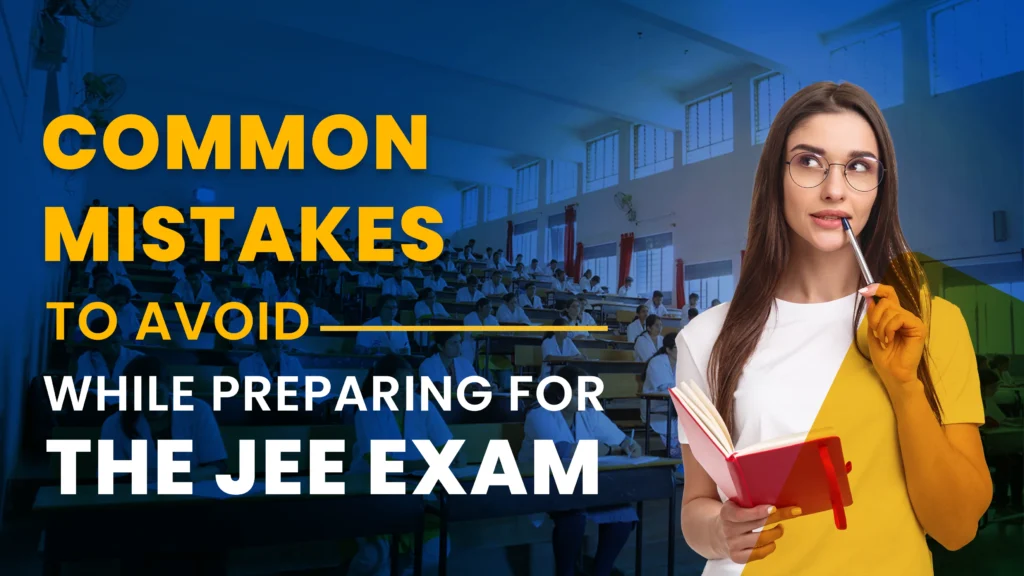Despite being a difficult task, preparing for the Joint Entrance Examination (JEE) may be immensely rewarding if done with the appropriate attitude and approach. As someone who has witnessed numerous individuals goes through this procedure, I can attest to the fact that there are some typical mistakes that many learners make when getting ready for the JEE. I’ll be highlighting a few of these errors and providing advice on how to prevent them in this article.
Starting late: Starting late is one of the biggest blunders students make when getting ready for the JEE. Given how difficult the JEE exam is, preparing for it takes a lot of effort and commitment. It’s a common error among students to put off starting their studies until the last minute, which can lead to catastrophe. A minimum of one or two years before the JEE, you should begin your preparations.
Lack of a clear plan: Failure to have a clear plan for your exam preparation is another common error students make. You must study for a lot of stuff because the JEE is a very comprehensive exam. You must have a strategy in place for your approach to learning as well as your areas of emphasis. You’ll be able to cover all the stuff you really have to know and stay organized and focused if you do this.
Only concentrating on theory: Concentrating only on theory and not practicing enough tasks is another error that students commit. You must be able to apply the theoretical concepts in order to solve problems, even if it is crucial to have a solid comprehension of them. Being capable of thinking critically and creatively is necessary to complete the JEE, which is a problem-solving test successfully.
Improper time management: Planning for the JEE requires good time management. There is a lot of ground to cover, so you must be efficient with your time. A common error among students is to devote too much effort to one subject while neglecting to allot enough attention to other topics. A precise schedule for how you will use your time should be made, and you should try to keep to it as much as possible.
Taking insufficient breaks is another error that students commit: It’s crucial to take pauses throughout the day and to give your brain time to relax and regenerate. Regular breaks will increase your focus and productivity while decreasing your risk of burnout.
Having insufficient practice: Whenever it comes to the JEE, practice really does make perfect. You should work through as many issues as possible in preparation for the test and become accustomed to the questions that will likely be asked. A common mistake made by students is not practicing enough, which can seriously impair their ability to perform well on the test.
Avoiding asking for assistance when necessary is another error that students commit: It is crucial to seek assistance if you are having trouble understanding a certain subject or idea. This may come from your tutor, teachers, or fellow students. Asking for assistance can greatly improve your comprehension of the subject matter, and there is absolutely no shame in doing so.
Missing out on health care: As you get ready for the JEE, it’s crucial to maintain your health. In order to achieve this, one must obtain enough rest, eat well, and exercise frequently. When you are concentrating on studying, it is simple to put your health on the back burner, but this can negatively affect how well you do on exams. Taking good care of yourself will keep you motivated, engage
Conclusion: In summation, the Joint Entrance Examination (JEE) is one of India’s toughest and most competitive tests. In order to improve their chances of passing the exam, students should avoid some common blunders.
First of all, they ought to avoid focusing excessively much time on a particular issue or query. Second, they should concentrate on strengthening their weakest areas rather than ignoring them. Thirdly, they should employ a variety of materials rather than relying simply on one study guide. And finally, they must take care of their bodily and emotional well-being. Finally, they should not evaluate their own growth in relation to that of others. Students can successfully study and perform well on the JEE exam by avoiding these blunders.
